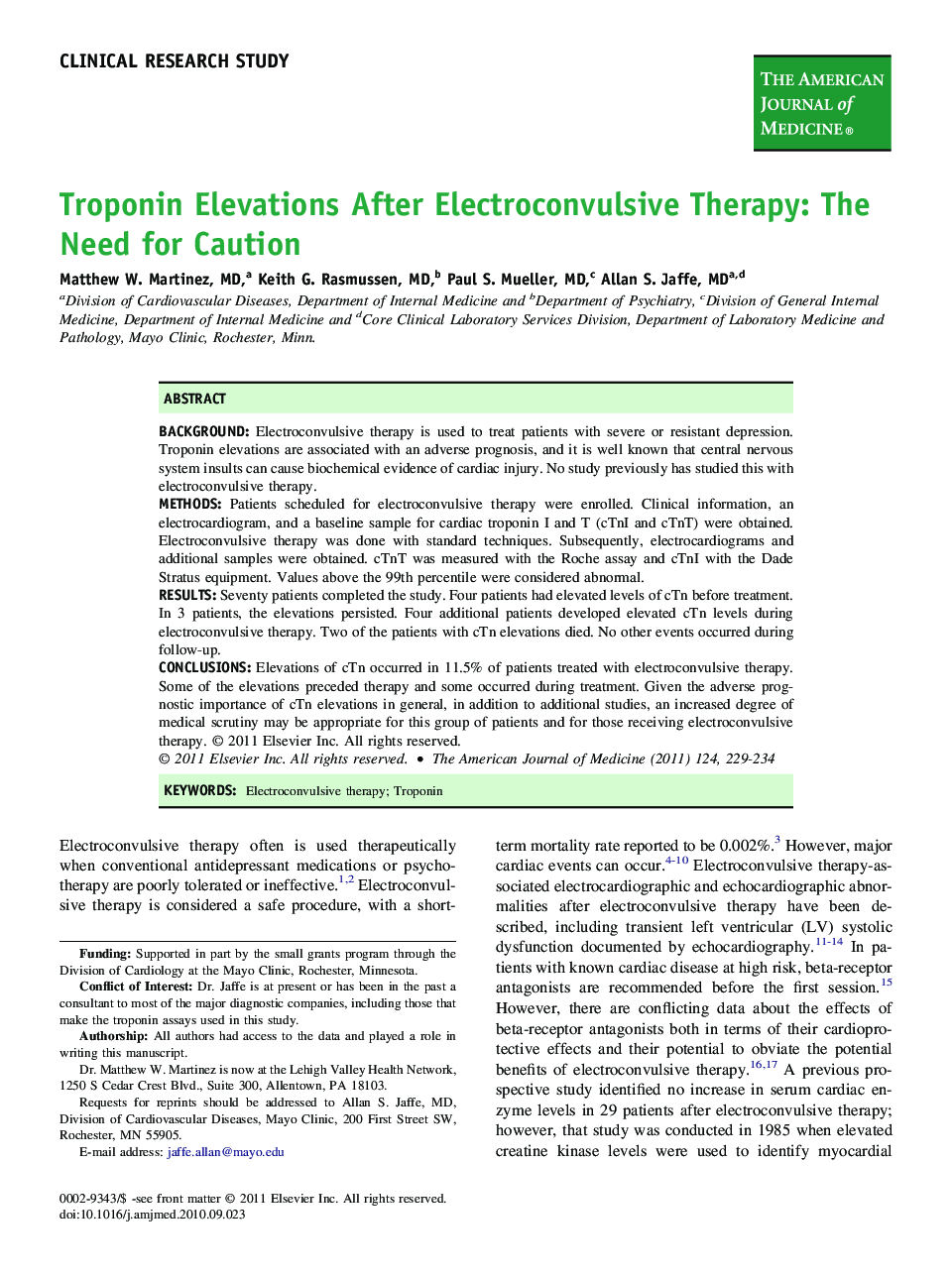| کد مقاله | کد نشریه | سال انتشار | مقاله انگلیسی | نسخه تمام متن |
|---|---|---|---|---|
| 2725522 | 1566183 | 2011 | 6 صفحه PDF | دانلود رایگان |

BackgroundElectroconvulsive therapy is used to treat patients with severe or resistant depression. Troponin elevations are associated with an adverse prognosis, and it is well known that central nervous system insults can cause biochemical evidence of cardiac injury. No study previously has studied this with electroconvulsive therapy.MethodsPatients scheduled for electroconvulsive therapy were enrolled. Clinical information, an electrocardiogram, and a baseline sample for cardiac troponin I and T (cTnI and cTnT) were obtained. Electroconvulsive therapy was done with standard techniques. Subsequently, electrocardiograms and additional samples were obtained. cTnT was measured with the Roche assay and cTnI with the Dade Stratus equipment. Values above the 99th percentile were considered abnormal.ResultsSeventy patients completed the study. Four patients had elevated levels of cTn before treatment. In 3 patients, the elevations persisted. Four additional patients developed elevated cTn levels during electroconvulsive therapy. Two of the patients with cTn elevations died. No other events occurred during follow-up.ConclusionsElevations of cTn occurred in 11.5% of patients treated with electroconvulsive therapy. Some of the elevations preceded therapy and some occurred during treatment. Given the adverse prognostic importance of cTn elevations in general, in addition to additional studies, an increased degree of medical scrutiny may be appropriate for this group of patients and for those receiving electroconvulsive therapy. © 2011 Elsevier Inc. All rights reserved.
Journal: The American Journal of Medicine - Volume 124, Issue 3, March 2011, Pages 229–234